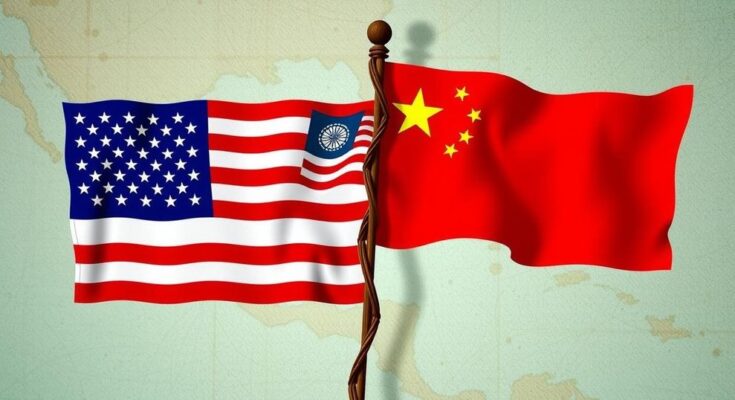China’s investments in Latin America’s renewable energy sector are reshaping the geopolitical landscape, raising concerns for the U.S. as it struggles to secure trade relationships. The potential re-election of Donald Trump could lead to heightened tensions with China, particularly in nations like Peru and Venezuela, where Beijing has established influential ties. This backdrop sets the stage for a renewed geopolitical rivalry as the U.S. seeks to counter China’s expanding influence.
As China continues to expand its influence in Latin America, its significant investments in the region’s energy sector have raised concerns among Western powers, particularly the United States. China’s dominance over the rare earths and critical materials necessary for renewable energy technologies positions it as a formidable competitor in the global market. With approximately 90% of installed wind and solar technologies in Latin America being produced by Chinese firms, the U.S. faces an uphill battle in securing its own supply chains to counter Chinese advancements.
The geopolitical landscape may shift significantly if Donald Trump were to win re-election. His administration’s past approach to trade and foreign relations hinted at a more confrontational stance towards China, particularly regarding its activities in the Western Hemisphere. This raises the possibility of heightened tensions amid China’s growing influence in nations like Peru and Venezuela, where it has established strong economic ties and strategic partnerships.
Furthermore, China’s extensive Belt and Road Initiative serves as a vehicle for increasing its influence in Latin America through infrastructure investments, allowing countries reliant on Chinese capital to further bind themselves to Beijing. This shared approach to development serves not only economic interests but also allows China to solidify its geopolitical goals, making it increasingly difficult for the U.S. to reclaim ground in these markets.
China’s expanding presence in global emerging markets, especially in Latin America, represents a complex geopolitical challenge for the United States and its allies. The region’s abundance of lithium, nickel, and cobalt—which are essential for clean energy technology—has attracted significant Chinese investment and influence. Through strategic ownership of critical resources and energy infrastructure, China has positioned itself as a dominant player, complicating efforts from the U.S. to establish strong trade relations and secure essential materials. The potential for increased U.S.-China conflict hinges on the political landscape under the next U.S. administration, particularly if Trump were to return to power, given his historical focus on aggressive trade policy.
In summary, as China consolidates its foothold in Latin America through infrastructure investments and energy partnerships, the strategic contest for influence in the region has intensified. Should Donald Trump be re-elected, the potential for conflict with China could escalate, particularly regarding trade policies and geopolitical dynamics. The balance of power in Latin America may hinge on how effectively the U.S. can respond to China’s growing dominance.
Original Source: oilprice.com




